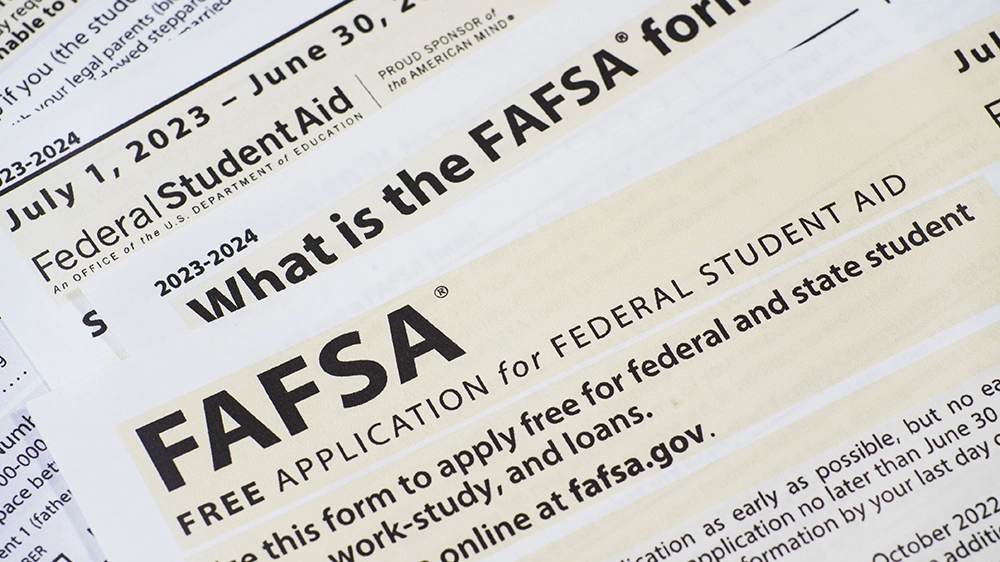Scholarships and Financial Aid for Healthcare Students: How to Fund Your Education


Overview of Financial Aid for Healthcare Students
Pursuing a career in healthcare can be both rewarding and challenging, especially when it comes to the cost of education. Fortunately, there are a variety of scholarships, grants, and financial aid options available to help healthcare students manage their educational expenses. These resources are designed to reduce financial stress, allowing students to focus more on their studies and less on how to afford their education, ultimately helping them achieve their career goals in healthcare.
Understanding the different types of financial assistance and knowing where to look for funding is crucial in making informed decisions about how to finance your healthcare education.
Types of Financial Aid Available for Healthcare Students
Scholarships are financial awards that do not need to be repaid. They are often merit-based or need-based and can come from a variety of sources, including educational institutions, private organizations, and healthcare associations. Healthcare scholarships are specifically designed for students entering healthcare-related fields. These scholarships can cover tuition, books, and sometimes even living expenses.
Grants are similar to scholarships in that they do not require repayment. They are typically need-based and may come from the federal or state government, as well as from private foundations or healthcare organizations. Federal grants like the Pell Grant are commonly awarded to students with financial need, and many healthcare-focused grants are available for students pursuing careers in underserved areas.
While loans do need to be repaid, they can be an important part of funding a healthcare education. Federal student loans generally offer lower interest rates and more flexible repayment options compared to private loans. Healthcare students can also take advantage of loan forgiveness programs like the Public Service Loan Forgiveness (PSLF) program, which may cancel the remaining debt after a certain period of service in a qualifying healthcare role.
Work-study opportunities allow students to work part-time while studying, often in roles that are related to their field of study. This provides an opportunity to gain practical experience in healthcare settings while earning money to help cover educational expenses.

Federal vs. State Financial Aid
- Federal Aid
Federal financial aid is the most widely available form of support for healthcare students. Through the Free Application for Federal Student Aid (FAFSA), students can apply for federal grants, loans, and work-study opportunities. Federal student loans, such as Direct Subsidized Loans and Direct Unsubsidized Loans, tend to offer favorable terms, including lower interest rates and flexible repayment options. - State Aid
Each state has its own financial aid programs, which may include grants, scholarships, and loans. For healthcare students, state-based funding can be especially helpful, as some states offer specific scholarships for students who intend to work in healthcare within the state. Researching your state's financial aid opportunities can provide additional funding options for your education.
Other Sources of Financial Aid for Healthcare Students
Using Career Counselors and Guidance Services
Career counselors at your high school and advising services and financial aid offices at colleges and universities are valuable resources when it comes to finding financial aid opportunities. These professionals are trained to help students find and apply for scholarships, grants, and other forms of financial assistance. They also provide guidance on how to prepare a strong application and connect students with relevant resources and professional networks in the healthcare industry.
Many colleges and universities have dedicated advisors or financial aid offices that focus on healthcare career pathways. These counselors often have up-to-date information on healthcare-specific scholarships and grants, as well as insider knowledge about industry trends and funding options.
Taking the Next Steps Toward Funding Your Healthcare Education
The journey to becoming a healthcare professional is a noble and impactful one, but it can also be financially demanding. Understanding the variety of scholarships, grants, loans, and work-study options available is essential for alleviating financial stress. Regardless of what healthcare profession you are pursuing, there are financial assistance programs that can help make your education more affordable.
Start early, seek out all available resources, and work with guidance counselors to maximize the financial aid you can receive. With the right support, you can make your healthcare career goals a reality.
While finding the right scholarships to help fund your education takes time and effort, starting early will allow you to meet your goals. Be cautious of anyone who asks for payment to find scholarships on your behalf. Legitimate scholarship searches should be free, and such offers are often more about taking your money than helping you succeed.